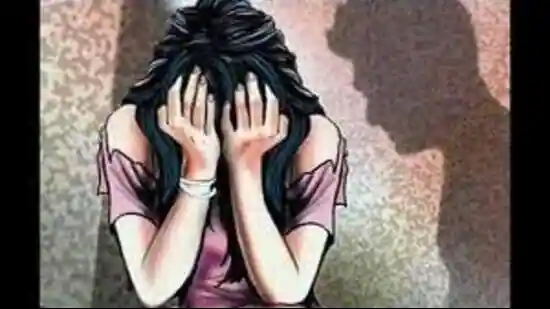Children grow not just with food and books, but with love, protection, and emotional connection. When homes turn into zones of conflict, violence, or neglect, children don’t just witness the pain — they live it. This isn’t just a family issue — it’s a violation of fundamental child rights.
Living in Fear: How Violence at Home Hurts Young Minds
Children who grow up surrounded by constant shouting, threats, or physical violence often carry invisible wounds. These emotional injuries don’t fade — they grow deeper. Many of these children experience anxiety, depression, or behavioral issues. Some stop attending school. Others turn to substance abuse to numb the chaos around them.
A May 2025 PLOS ONE study revealed a strong correlation between domestic violence and mental health issues in Indian adolescents. Children aged 12–17 whose mothers faced abuse reported significantly higher levels of anxiety and depression.
The cVEDA study (Consortium on Vulnerable Populations and Mental Health) further found that adolescents exposed to adverse childhood experiences — including domestic violence — are four times more likely to use addictive substances.
Who Must Step Up?
Parents: The First Line of Emotional Defense
Parents don’t just raise children — they shape their sense of self-worth. Children don’t need perfect parenting; they need present, emotionally available parents.
When parents yell, insult, or ignore their children, they don’t just lose patience — they plant trauma. Emotional neglect, comparisons, and silence can damage a child more than physical punishment ever could. A mother’s emotional warmth often acts as the child’s strongest shield against the outside world.
Schools: Not Just Places of Learning
Schools must do more than teach — they must nurture. Teachers and staff must learn to identify signs of distress like withdrawal, aggression, or anxiety. Schools should implement regular mental health programs, offer counseling support, and create safe, responsive environments. Fear blocks learning; safe classrooms unlock potential.
Society: No More Silent Witnesses
When neighbors hear abuse and choose silence, they indirectly aid the harm. When society mocks, shames, or ignores a child in pain, it deepens their loneliness. Every voice matters. Instead of asking, “Is this my concern?” we must ask, “How can I protect this child?”
Legal Safeguards: Children’s Rights Are Non-Negotiable
India’s laws affirm every child’s right to safety, dignity, and mental well-being. Articles 21 and 39 of the Constitution and the Juvenile Justice Act, 2015 guarantee a violence-free and nurturing childhood.
Under the Domestic Violence Act, 2005, emotional abuse — including verbal threats, neglect, or exposure to domestic fights — qualifies as a punishable offense.
Despite thousands of domestic violence cases being reported annually, many children remain invisible victims, silently absorbing trauma.
The Mental Healthcare Act, 2017 mandates access to safe and confidential psychological care for every child.
Under Section 19 of the POCSO Act, any adult who becomes aware of child abuse must report it. Failure to do so is not just negligent — it’s a criminal act.
Childline 1098: A Lifeline for Children in Crisis
Childline 1098, a government-supported 24×7 helpline, stands ready to help children in distress. Whether you’re a child facing harm or an adult witnessing abuse — this line is open. One call can save a life.
- M Swathi , Lawyer and psychologist





